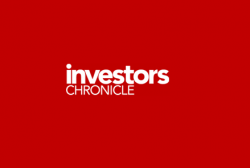by Val Cipriani, Investors Chronicle, January 16, 2024:
Infrastructure trusts are facing a “complex and time-consuming” process of handing back assets to the government, as a number of the projects they invest in approach their expiry date. Some trusts also have the added difficulty of replacing assets built through public private partnerships (PPP) and could lose value as a result, Stifel analysts have warned.
The three main ‘core’ infrastructure trusts, HICL Infrastructure (HICL), International Public Partnerships (INPP) and BBGI Global Infrastructure (BBGI), have significant investments in PPP and private finance initiative (PFI) deals…
Towards the end of the decade, these funds could be moving into their repayment phase, where cash remaining in the expiring projects is paid to shareholders through dividends or capital repayments. At the same time, portfolio valuations are expected to decline, unless the proceeds are directed towards new investments…
Out of the three, INPP now has the lowest exposure to PPPs at 40 per cent as of 30 June 2023, but has more in regulated assets at 50 per cent. As of September 2023, 63 per cent of HICL’s revenues were contracted, 17 per cent were demand-based and 20 per cent were regulated. Meanwhile, BBGI has stuck with government-backed revenues, but has lower exposure to the UK, with investments in countries where new PPP projects are still available…
James Carthew, head of investment company research at QuotedData, said that ultimately it is “a case of picking the fund that suits your risk appetite”, with BBGI at the conservative end of the spectrum, HICL and INPP “not a lot riskier”, and 3i Infrastructure (3IN) and Pantheon Infrastructure (PINT) looking more speculative.
He also noted that recent transactions by HICL and INPP demonstrate that infrastructure assets are still “changing hands and at pricing that underpins the validity of the NAVs and brings into question the discounts that these funds trade on”. This could make them buyout targets, he added.
Read more here
